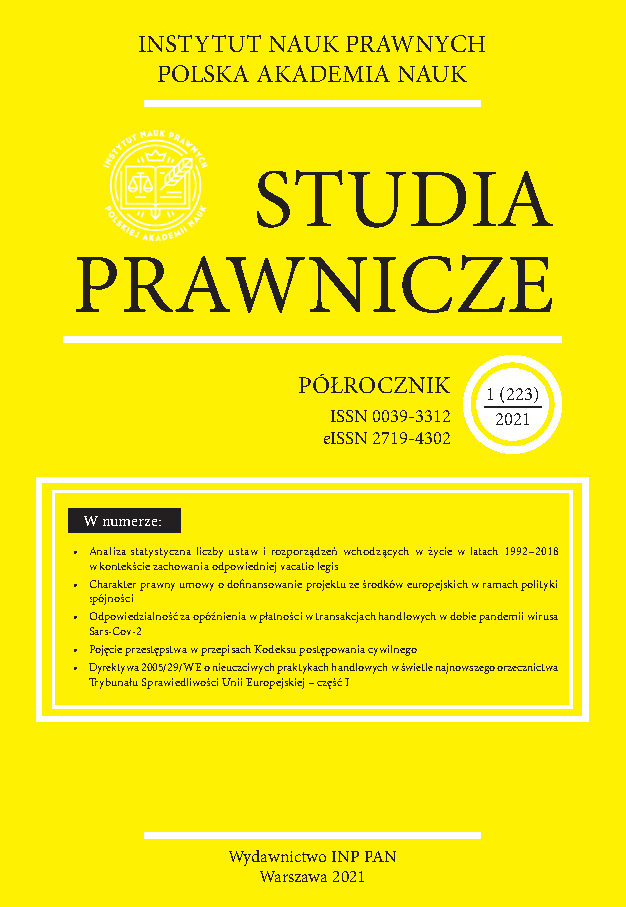Prawo petycji do Parlamentu Europejskiego
Right of petition to the European Parliament
Author(s): Ewa WójcickaSubject(s): Law, Constitution, Jurisprudence
Published by: Instytut Nauk Prawnych PAN
Keywords: European Parliament; European Communities law; civic rights; European Union; right of petition; Committee on Petitions; petition; complaint
Summary/Abstract: The right to submit a petition to the European Parliament was included in the Treaty of Maastricht in the provisions on European citizenship. Any citizen of the European Union, or resident in a Member State, may, individually or in association with others, submit a petition to the European Parliament on a subject which comes within the European Union’s fields of activity and which affects them directly. Any company, organization or association with its headquarters in the European Union may also exercise this right of petition, which is guaranteed by the Treaty. A petition may take the form of a complaint or a request and may relate to issues of public or private interest. The petition may present an individual request, a complaint or observation concerning the application of EU law or an appeal to the European Parliament to adopt a position on a specific matter. Requests for information only are not dealt with by the Committee on Petitions, neither are general comments on EU policy. The subject of the petition must be concerned with issues of European Union interest or responsibility such as: rights as a European citizen as set out in the Treaties, environmental matters, consumer protection, free movement of persons, goods and sendees, internal market, employment issues and social policy, recognition of professional qualifications, other problems related to the implementation of EU law. If petition does not fall within the area of activity of the European Union it will be declared inadmissible. This could be because the subject is clearly the responsibility and competence of the Member State. Because the right of petition is a general right, it must also be easy to exercise. For this reason, the only requirements made of those who wish to submit a petition are that they draw it up in writing, sign it and give their address. The petition presented to the European Parliament must also include occupation and nationality. The Internet page also offers a trial system allowing people to co-sign petitions online. Admissible petitions shall be considered by the committee responsible in the course of its normal activity, either through discussion at a regular meeting or by written procedure. The Petitions Committee is the central point of contact at the European Parliament for anyone. The Committee on Petitions is composed of 34 Members and is headed by a Chairman and 4 Vice-Chairmen. Meetings of the Committee on Petitions take place every month, as a rule, except during the month of August when Parliament is in recess. The Petitions Committee of the European Parliament may seek to cooperate with national or local authorities in Member States. The Petitions Committee cannot review court judgments or other court, decisions. As the European Parliament is not a judicial authority: it can neither pass judgment on, nor revoke decisions taken by, the Courts of law in Member States. The Committee on Petitions has various means of examining a petition. Depending on the nature of the request, it can: request the European Commission to provide relevant information or an opinion; organize hearings or dispatch members; submit the subject of the petition to the European Ombudsman or seek the opinion of other parliamentary committees. When consideration of an admissible petition has been concluded, it shall be declared closed and the petitioners are informed of decisions of inadmissibility along with the reasons for the decision. On average, over 1.000 submissions are received each year by the Petitions Committee. In most cases, the petitions deal with subjects concerning citizens in their daily lives: social affairs, the environment, freedom of movement, taxation and recognition of qualifications.
Journal: Studia Prawnicze
- Issue Year: 181/2009
- Issue No: 3
- Page Range: 25-46
- Page Count: 22
- Language: Polish

